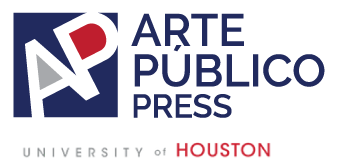![]() HOUSTON, TX—Arte Público Press’ long-term project to locate, preserve and disseminate the written legacy of Latinos in the United States from the Colonial Period to 1960, the RECOVERING THE US HISPANIC LITERARY HERITAGE PROJECT, recently received a $50,000 grant from the National Endowment for the Humanities to research and locate writings and other historical documents by and about Latinos in the United States.
HOUSTON, TX—Arte Público Press’ long-term project to locate, preserve and disseminate the written legacy of Latinos in the United States from the Colonial Period to 1960, the RECOVERING THE US HISPANIC LITERARY HERITAGE PROJECT, recently received a $50,000 grant from the National Endowment for the Humanities to research and locate writings and other historical documents by and about Latinos in the United States.
Dr. Nicolás Kanellos, primary investigator for the grant and director of the press, will collaborate with University of Houston librarians Jacqueline Bronicki, Assessment and Statistics Coordinator, and Lisa Cruces, Hispanic Collections Archivist, to conduct and analyze a survey of small historical societies, libraries and museums in the Southwest that may hold Hispanic archival materials. This project will produce the first-ever guide to Hispanic archival collections in the Southwest, which will be made available for general reference on the Arte Público website. Following the survey, strategies will be developed for preserving and making available the materials in these collections. More information about the National Endowment for the Humanities and the programs it has funded can be found here.
The largest endeavor of its kind to study Hispanic culture and literature in the United States, the Recovery Project was founded in 1991 and has digitized an extensive collection of books, manuscripts, newspapers, photographs and other archival items. Its importance lies in filling the large gap that exists in American historical and literary studies: the Hispanic contribution. The broad scope of the project includes the recovery of all of the conventional literary genres as well as letters, diaries, oral lore and popular culture by Cuban, Mexican, Puerto Rican, Spanish and other Hispanic residents of what has become the United States. In addition to publishing databases, electronic and print publications, the Recovery Project organizes a biennial conference and works with hundreds of scholars, librarians and archivists in the US and abroad. The project will have a long-lasting impact on education and on our knowledge about a large and important dimension of US culture.




